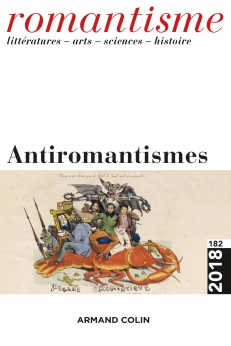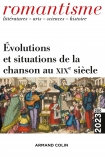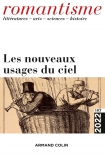
ROMANTISME N° 182 (4/2018)
Pour acheter ce numéro, contactez-nous
Recevez les numéros de l'année en cours et accédez à l'intégralité des articles en ligne.
Des débuts du Second Empire à l’apothéose républicaine de Hugo, l’antiromantisme paradoxal de Vallès offre un « point d’optique » privilégié. Vallès partage avec le romantisme social l’idéal d’un art engagé, révolutionnaire et démocratique ; c’est précisément cette convergence originelle qui précipite la rupture : quand la canaille lyrique dégrade la solidarité en sensiblerie hypocrite, quand l’esthétique intimiste se renverse en autolâtrie forcenée, quand la grandiloquence du style dérobe le réel, la modernité se trouve sommée de forger des poétiques inédites, réalistes et actualistes, afin de réinventer une littérature faite par tous et destinée à tous.
All through the beginning of the Second Empire to Victor Hugo’s Republican apotheosis, the paradoxical anti-romanticism of Jules Vallès offers a privileged and literal “point of view”. Vallès shares with social romanticism the ideal of politically active, revolutionary and democratic art; it is in fact that very convergence of views that leads to a rupture : when the lyricism of the sewers debases solidarity into hypocritical sentimentalism, when an intimist aesthetic becomes maniac autolatry, when the purple of the prose covers up reality, modernity is requested to invent new poetics that are both realistic and contemporary in order to reinvent a literature by all and for all.

